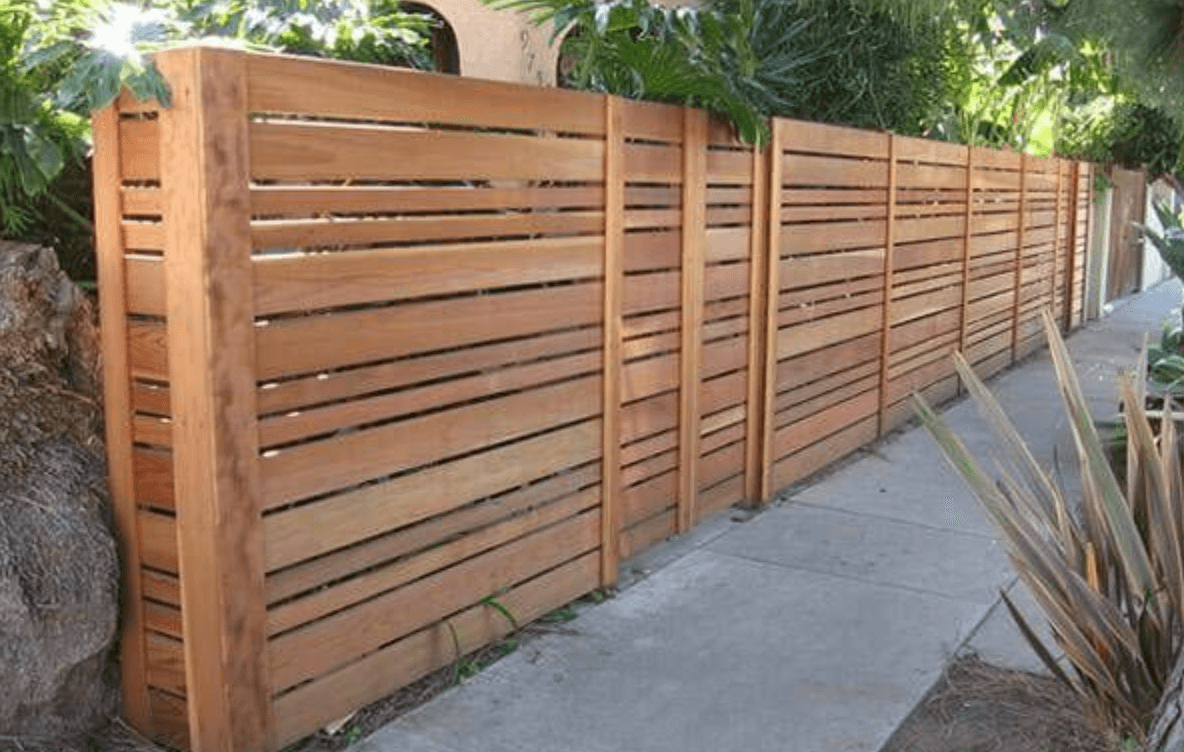All Categories
Featured
What Kinds of Fencing Products Are Readily Available for Residential and Commercial Projects?

When preparing to mount a fence, picking the best material is important for satisfying the visual, functional, and monetary requirements of your building. Whether for household or commercial use, modern-day fencing options use a variety of choices to match particular needs. Right here's an in-depth look at one of the most common fence materials available today.
- Timber Fencing. Wood is a timeless option for house owners looking for beauty and flexibility. It functions well for privacy fencings, decorative designs, and limit noting.
Trick Advantages of Wood Fencing:
Aesthetic Flexibility: Can be crafted into different designs, including board-on-board, lattice, and picket styles. Cost-efficient: Deals price for several projects, especially smaller sized residential ones. Adjustable: Easily painted or stained to match a home's exterior. Drawbacks: Requires regular upkeep, such as discoloring and sealing, to protect against weathering and bugs.
- Plastic Fence. Plastic secure fencing has grown in popularity because of its sleek appearance and marginal maintenance needs. It's an excellent alternative for both residential and industrial spaces.
Benefits:
Durable and Resilient: Vinyl stands up to climate damages, parasites, and fading. Easy Upkeep: A quick wash with soap and water keeps it looking excellent. Stylish Choices: Comes in several shades and textures, some mimicking all-natural timber. Considerations: The initial price is higher, however the long-term cost savings on maintenance can make it a sensible investment.
- Chain-Link Secure fencing. Chain-link fencing is a sensible solution for safeguarding big areas, typically made use of in industrial, industrial, and recreational residential or commercial properties.
Benefits:
Price: Among one of the most economical fence options. Longevity: Stands up to deterioration, even in tough environments. Exposure: Offers a clear line of view while maintaining protection. Drawbacks: Limited aesthetic charm and personal privacy unless incorporated with slats or foliage.
- Light weight aluminum Fence. Light weight aluminum offers a sophisticated look without endangering on longevity. It's specifically popular for ornamental or security functions.
Trick Includes:
Rust-Free: Perfect for damp environments or swimming pool rooms. Reduced Maintenance: Requires minimal maintenance compared to iron or wood. Classy Look: Frequently made use of to mimic functioned iron without the substantial price tag. Factors to consider: Not as solid as steel, making it less appropriate for high-security demands.
- Wrought Iron Fence. Understood for its classic style and durability, functioned iron is a favorite for high end residential properties.

Benefits:
Toughness and Security: Difficult to break or flex, making it optimal for high-security applications. Customizable Styles: Can be formed right into complex patterns for an unique appearance. Longevity: With correct upkeep, wrought iron can last for decades. Downsides: Calls for normal upkeep to prevent corrosion and is among the much more expensive secure fencing choices.
- Composite Fencing. Composite fences incorporate timber fibers and plastic for a sturdy, green option.
Advantages:
Environmentally Friendly: Usually made from recycled products. Reduced Upkeep: Resistant to rot, parasites, and bending. All-natural Appearance: Mimics the look of wood without the maintenance. Disadvantages: Greater in advance price compared to traditional wood fence.
- Bamboo Secure fencing. Bamboo is a stylish and lasting choice, particularly for homes looking for an all-natural visual.
Advantages:
Eco-Friendly: Bamboo is naturally degradable and eco-friendly. Special Appearance: Adds a tropical or Zen-inspired touch. Affordable: Commonly cheaper than woods. Disadvantages: Less sturdy in severe climates or versus prolonged exposure to dampness.
- Steel Fencing. Steel fencing supplies unrivaled strength, making it a go-to alternative for commercial and commercial demands.
Features:
Heavy-Duty Toughness: Manages considerable influences and weather condition challenges. Personalized Coatings: Powder finish enhances its appearance and long life. Safety and security: Suitable for areas calling for enhanced protection. Considerations: Higher expense and weight make it less suitable for small-scale jobs.
- Stonework or Rock Secure Fencing. For homes looking for a very durable and irreversible option, rock or masonry fence is a costs selection.
Benefits:
Ultimate Longevity: Withstands rough climate and lasts for years. Soundproofing: Blocks sound, making it perfect for metropolitan areas. Luxury Aesthetic: Supplies a high end look that matches premium properties. Downsides: High setup expenses and minimal versatility in layout adjustments.
Just How to Pick the Right Material. When selecting a secure fencing material, take into consideration the list below aspects:
Objective: Do you require protection, personal privacy, or ornamental allure? Budget: Some materials, like timber and chain-link, are affordable, while functioned iron and rock come at a premium. Maintenance: Materials like vinyl and light weight aluminum are easier to preserve, while wood and functioned iron demand routine care. Climate: Some materials, such as bamboo or untreated timber, are much less suitable for severe weather. Conclusion. Fencing products today use a large range of alternatives to match various budgets, features, and styles. Whether you prioritize longevity, visual appeals, or eco-friendliness, there's a product that will fit your needs. By functioning with a professional fence service provider, you can explore these alternatives comprehensive and make certain a perfect installation for your industrial or residential task.
Latest Posts
Learn How to Reduce Expenses on Car Maintenance with Montclare Auto Repair’s Exclusive Deals
Published en
1 min read
Specialist Commercial Roof Solutions in North Platte, Nebraska
Published en
2 min read
Dependable Expenses Door Solutions for Residences and Services
Published en
1 min read
More
Latest Posts
Learn How to Reduce Expenses on Car Maintenance with Montclare Auto Repair’s Exclusive Deals
Published May 27, 25
1 min read
Specialist Commercial Roof Solutions in North Platte, Nebraska
Published May 24, 25
2 min read
Dependable Expenses Door Solutions for Residences and Services
Published May 23, 25
1 min read